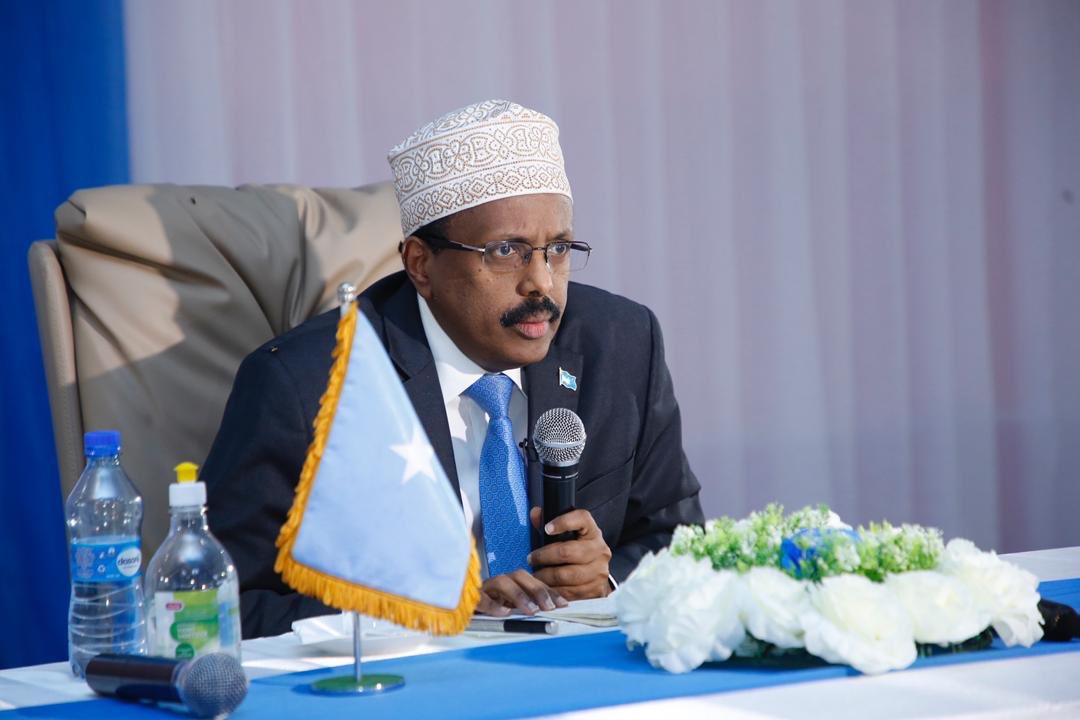BACK TO 2016: No change as Farmaajo, FMS leaders adopt 2016 poll deal

By T. Roble
President Mohamed Farmaajo and Federal Member State leaders meeting in Mogadishu have broken the long-running electoral stalemate adopting virtually all aspects of the 2016 elections model in what could project no change in Farmaajo’s four year legacy to move the country into a more inclusive and democratic electoral state.
In what appears a copy-paste deal of the 2016 model adopted by then National Leadership Forum, the upcoming elections will be run by a temporary national electoral commission in joint coordination with their counterparts at the regional level.
In 2016, the Federal Indirect Electoral Team (FIET) and State Indirect Elections Team (SIET) was appointed by the Federal Government and Federal Member States respectively to run the then polls. The two bodies were subsequently dissolved upon completion of the exercise.
ONLY 50 MORE DELEGATES
While Somalis expected to see more voters electing members of parliament four years after only 51 sent to parliament each MP, they may have to wait longer as only an additional 50 delegates have been added to the current model.
The Mogadishu Model now sets the number of delegates at 101 down from 301 proposed in the Dhusamareb Model. Puntland and Jubbaland had strongly opposed the Dhusamareb numbers and instead fronted 101. It seems also from the Mogadishu Model that both Ahmed Madobe (Jubbaland) and Abdullahi Deni of Puntland have had their way regarding the number of polling centres.
The two leaders including some political parties had routed for a reduction from four polling centres to only one-FMS capitals. The Mogadishu Model now sets the number of polling stations to two.
FARMAAJO’S LEGACY
The Halima Yarey-led National Independent Electoral Commission (NIEC) will for the second time watch from the sidelines as the leaders meeting in Mogadishu have proposed that the ‘Federal Government appoint an electoral body to work together with FMS regional electoral bodies.’
The near adoption of the 2016 Model is said to have worried Farmaajo who told the FMS leaders ‘it would look like we all failed’. For Farmaajo, it was not just an electoral model but also a legacy which for now may have to live with a harsh verdict from the public in regards to his track record in promoting and championing for inclusive and more participatory democratic elections.
The Mogadishu Model which will still need to be refined to define some components adds that the delegates will be selected jointly by elders, civil society in coordination with FMS governments. It is not however clear how the civil society lot will be constituted for this exercise.
In what could be seen as victory for the Senate which had lamented Farmaajo’s move to ignore it in the process, the Mogadishu Model now makes it compulsory for the deal to be approved by both Houses unlike in the Dhusamareb Model which only mentioned the Lower House.